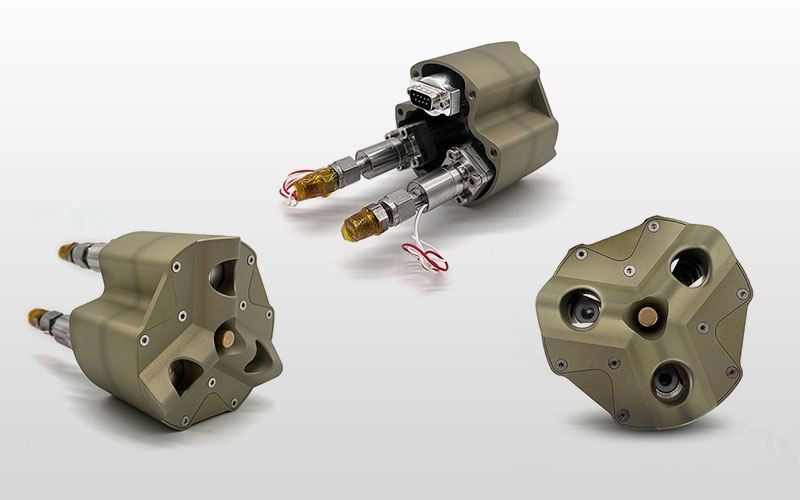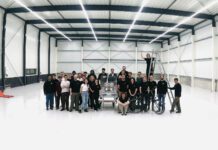
Delft-based Dawn Aerospace has introduced its Docking and Fluid Transfer port, which will be used in conjunction with its SatDrive propulsion system.
Dawn is often associated with its spaceplane development, but the company also provides a range of turn-key satellite propulsion systems. While its New Zealand-based headquarters focuses on the development and testing of its spaceplane, its European arm, headquartered in the Netherlands, is the primary driver of its propulsion business.
The company’s new Docking and Fluid Transfer (DFT) port includes provisions for data connections and two propellants: nitrous oxide and propene or ethane. According to the company, nitrous-based propulsion systems are ideally suited for on-orbit refueling as they require no pumps. Once a connection is made, the transfer of propellants is enabled by temperature differential alone.
“With low mass, low risk, and zero cost, we believe it’s getting close to a ‘no-brainer’ decision for any Dawn customer who sees value in refueling,” explained Dawn CEO Stefan Powell in a statement.
Dawn Aerospace expects that the adoption of its DFT system alone could go a long way toward building a sustained customer base for on-orbit refueling services.
“Dawn is currently producing about one satellite propulsion system per week,” said Powell. “Not all will use the DFT, but if a significant fraction does, we foresee potentially hundreds of refuellable satellites on-orbit by the 2030s. That will go a long way to establishing a customer base for satellite refueling.”
In addition to on-orbit refueling, the company also envisions the port as being a vital connection point for debris removal operations.
According to Dawn, several customers are in line to use the DFT port. The first flight of a satellite equipped with one is expected to take place in 2025. After that, the company plans to offer the port as standard on all SatDrive systems above 10 kNs.


